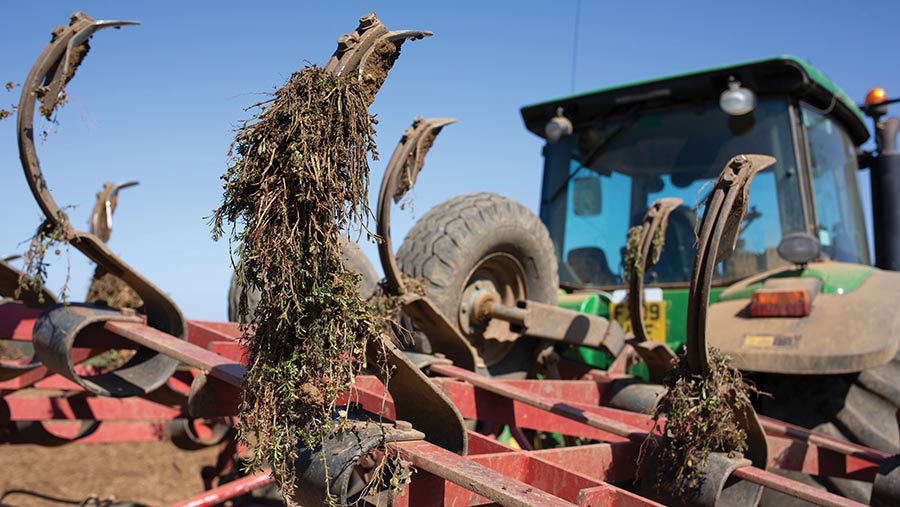Lincs grower uses latest tech to improve difficult soils
 © Tim Scrivener
© Tim Scrivener Henry Hickling returned to his family’s Lincolnshire farm eager to stay up to date with all the latest technology to help improve soil health and the environment and so he embarked on a series of specialist courses.
The family business extends to three farms in east Lincolnshire, covering 3,000ha, growing a range of crops from cereals to cauliflowers and employs a staff of 20, and so it demanded a range of skills.
After five years at university, Mr Hickling was attracted to a number of Basis courses – which set standards for the pesticide industry – to be aware of the latest technical developments and so work with the farm’s three managers and two independent agronomists.
See also: How young farmers can get started with their own arable land
The team is now working together to introduce a new drill to help with soil health, plant more hedges and try to limit the soil damage that comes from lifting late vegetables on old marshland close to the coast.
“When on the farm we are always speaking about modern techniques to enhance sustainable farming by improving soil health and the environment,” he tells Farmers Weekly.
Difficult soils
A host of Basis courses helped to focus his mind, but it was also a comment from a retiring staff member who said that the farm’s soils had been getting more difficult to work over the past 40 years that gave him a hint to a future move.
A new Horsch Focus 6m wide strip-till drill soon arrived on the farm, and its first job this summer will be drill oilseed rape, while there is still a Vaderstad to establish cereals with minimum tillage.
In the past, a majority of the land would have been ploughed and disc-pressed, but the team is now challenging the old ideas and moving towards fewer cultivations to help soil health and cut the diesel bill.
This has prompted thoughts of strip-tilling the vegetable crops of calabrese and cauliflower, rather than the traditional method of ploughing and heavy cultivations.
With the move towards farm subsidy payments being linked to environmental measures, Mr Hickling is already preparing for the farm’s inclusion in new environmental schemes, by encouraging wildlife on the salt marshes and a programme of hedge planting.
Farm return
Mr Hickling, 30, came back five years ago to the family-run Parker Farms to help run the business with his mother after taking a biochemistry degree at Leeds University followed by an agriculture degree at Nottingham.
The business operates three farms, one at North Cotes, just south of Grimsby; one inland near Alford; and the final one at Wainfleet, in the area hit by heavy February flooding. The North Cotes farm grows 100ha of vegetables and Wainfleet between 400ha and 600ha each year.
The farms are run as two separate businesses – CW Parker and GH Parker – growing cereals, oilseed rape, potatoes, sugar beet, vining peas and also cauliflowers and calabrese, along with a small suckler herd, on a range of soils from sands through silts to heavy clays.
Hr Hicking is particularly interested for the future in high-value crops such as potatoes, grown for chipping, and vegetables, while cattle number are slowly declining.
He has completed several Basis qualifications, including Basis certificate in crop protection, Facts crops nutrition, and advanced certificates in potatoes and nutrition.
It’s vital to stay up to date on all of this latest knowledge, he says, so he can work with his agronomists to get the best from the farm – and not just taking what the agronomists say for verbatim.

